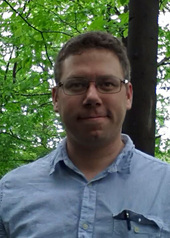Mark Patrick Hartz
|
 |
Experimental observations of neutrino oscillations through the mixing of their mass and flavor states have established that neutrinos have mass. Recently, T2K and other experiments have established the mixing of neutrinos through the third and smallest mixing angle, which opens the door for CP violation in neutrino oscillations. If CP violation is present, neutrinos and their antimatter counterparts, antineutrinos, will oscillate differently. This CP violation signature can be observed by experiments which produce beams of muon neutrinos (antineutrinos) that oscillate to electron neutrinos (antineutrinos).
I am participating in the T2K experiment, which aims a beam of muon neutrinos produced at the J-PARC accelerator facility towards the Super-Kamiokande detector, 295 km away. We make measurements of muon neutrino to electron neutrino oscillations, the first step in detecting CP violation, and make precision measurements of neutrino oscillation parameters. I am particularly interested in the ability of T2K to search for CP violation by producing a beam of antineutrinos, and future experiments that will be necessary to more precisely measure the amount of CP violation.
I am also collaborating on the Hyper-K experiment, a successor to T2K and Super-K that will employ a larger detector mass to increase the sensitivity to discover CP violation in neutrino oscillations and make precision measurements of neutrino oscillation parameters. Hyper-K will collect thousands of neutrino interaction candidate events, requiring an unprecedented reduction of systematic errors to achieve the full sensitivity of the experiment. I am co-spokesperson of the proposed E61 experiment at J-PARC, which is a kilo-ton scale water Cherenkov detector that can be placed at different positions relative to the neutrino beam direction. This experiment will allow us to measure the energy dependence of neutrino interactions on a water target, controlling critical systematic errors for the T2K and Hyper-K experimental programs.
Back to Member List.






